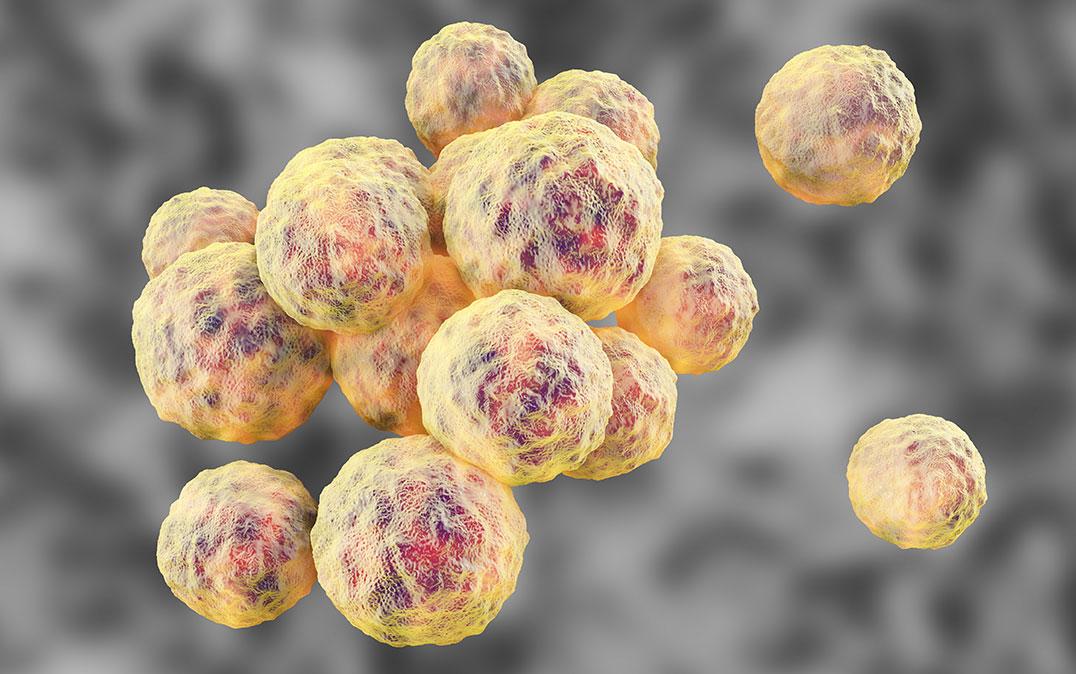Research News
[Nature Index Selection] Mechanism Revealed for Spread of Antibiotic Resistance among Bacteria (Research highlights in September, 2022)
The Nature Index, a database site operated by Springer Nature, selects one research paper of the researchers belonging to the University of Tsukuba as a Research Highlight from 82 major journals every month. In September, 2022, it featured the above research.
One way antibiotic resistance spreads among bacteria
Nature Index: Profile page of the University of Tsukuba
Nature Index Research highlights: University of Tsukuba
 Image by Kateryna Kon/Shutterstock
Image by Kateryna Kon/Shutterstock
Researchers from the University of Tsukuba show that antibiotic resistance can be transferred between Staphylococcus bacteria by a process known as natural transformation
Tsukuba, Japan—A bacteria called Staphylococcus aureus is widespread and generally harmless, but can cause infections known as "opportunistic infections". These occur when the bacteria take advantage of certain situations, such as a weakened immune system or the presence of an open wound, to cause a harmful infection. These infections become particularly dangerous when the bacterial strain is resistant to treatment with antibiotics. Strains of Staphylococcus aureus known as MRSA, which are resistant to an antibiotic called methicillin, are becoming a significant problem worldwide. Now, a team from the University of Tsukuba have revealed the mechanism by which this methicillin resistance can be passed between bacteria.
Genetic information for traits such as virulence and drug resistance can be passed from one bacterium to another through the transfer of mobile genetic elements, a process called horizontal gene transfer. There are a variety of methods by which bacteria can carry out horizontal gene transfer. The mechanism by which methicillin resistance is transferred has not previously been known.
Researchers from the University of Tsukuba have now shown that a process known as natural transformation is able to result in the transfer of the mobile genetic element that carries resistance to methicillin, known as "SCCmec". Natural transformation involves the bacterial cells entering a state termed "competence", in which they can take up genetic material from the environment outside their cell wall.
When a Staphylococcus aureus infection occurs, the bacteria tend to form a "biofilm", where the cells stick to each other and to the surface they are on, forming an organized network within a slimy extracellular structure. These biofilms are known to protect bacteria from the host immune system and medical treatment. This study has now shown that the environment within the biofilm also promotes horizontal gene transfer.
"Not only does our study reveal more about the spread of bacterial resistance, but it establishes a reliable system to detect natural transformation in Staphylococcus aureus," explains main author Professor Ryosuke L. Ohniwa. "This will enable further research into how to interfere with this process and impede the spread of bacterial resistance."
"Biofilm formation seems key in allowing natural transformation to occur," explains senior author Professor Kazuya Morikawa. "Targeting biofilm formation could be a promising approach for preventing the evolution of staphylococcal bacteria and the spread of bacterial resistance by the transfer of SCC mobile elements."
This work therefore represents a major step forward in the global battle against antibiotic resistance.
###
This study was supported by Takeda Science Foundation, The Waksman Foundation of Japan, Pfizer Academic Contributions, JSPS KAKENHI Grant Numbers 25860313 and 18H02652, JSPS Bilateral Open Partnership Joint Research Projects JPJSBP120199916 (to KM), and Program to Disseminate Tenure Tracking System, MEXT (to RLO).
Original Paper
The article, "Natural transformation allows transfer of SCCmec-mediated methicillin resistance in Staphylococcus aureus biofilms", was published in Nature Communications at DOI: 10.1038/s41467-022-29877-2
Correspondence
Professor MORIKAWA Kazuya
Associate Professor OHNIWA Ryosuke L.
Faculty of Medicine, University of Tsukuba





